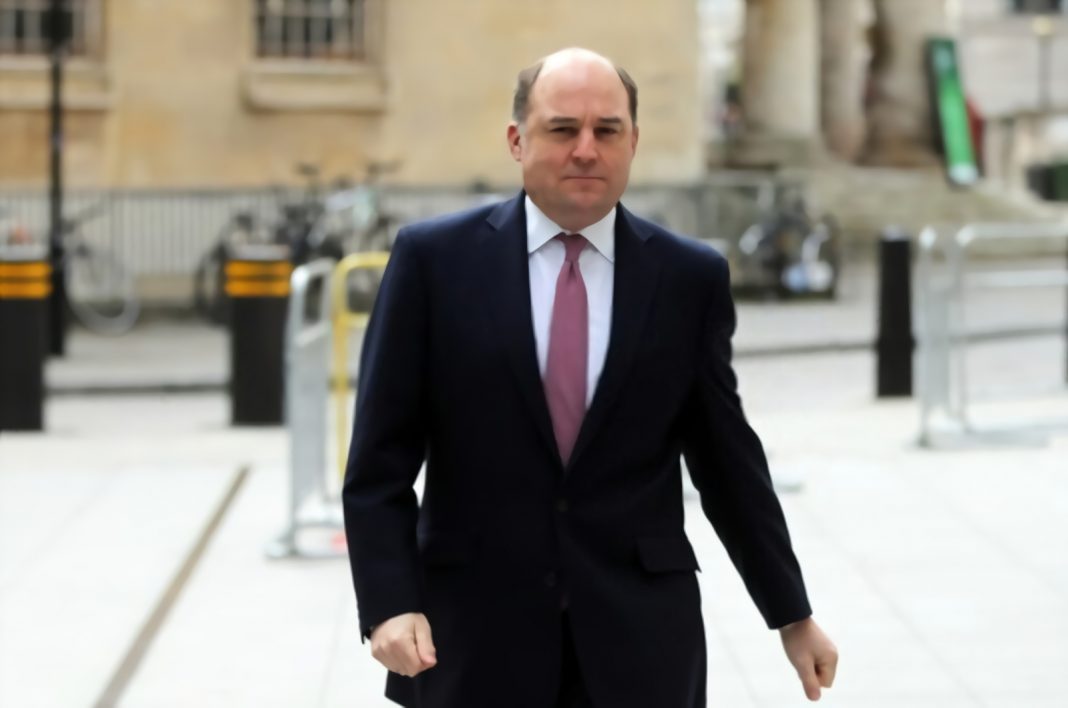London, June 30 (Reuters) – Britain will boost defence spending to 2.5% of its gross domestic product (GPD) by the end of this decade, Prime minister Boris Johnson said on Thursday, making a new commitment to bolster the military budget after Russia’s invasion of Ukraine.
We need to invest for the long term in vital capabilities like future combat air, while simultaneously adapting to a more competitive world,” Johnson said at a NATO conference summit in Madrid dominated by the Ukraine conflict.
“The logical conclusion of the investments we propose to embark, of these decisions, is that we’ll reach 2.5% of GDP on Defence by the end of the decade.”
His comments came after NATO on Wednesday branded Russia the biggest “direct threat” to Western security and agreed on plans to modernise Ukraine’s beleaguered armed forces.
This year, Britain is projected to spend 2.3% of GPD due to the increasing cost of defensive support for Ukraine, bringing Britain face-to-face with an unpredictable increment.
Earlier this year week, Defence Minister Ben Wallace said Britain must boost defence investment to tackle threats not only from Russia but from China and other countries.
He said investment must increase from 2024 onwards when the current spending package is due for review.
Britain Must Spend More on Defence, Minister Says
The UK defence budget is being mostly spent to help the Ukraine war, thus creating untold problems for the country.
The UK defence budget has been spent on Ukraine from the start of the Russia-Ukraine war. Britain has been trying to support this country and British soldiers have participated in NATO exercises as allied troops carried out Swift Response 22 drills during a media open day at the Krivolak army base, North Macedonia, on 12 May 2022.
As most of the UK defence budget has been spent on supporting Ukraine, this country must be more conservative and try to increase its defence budget.
Earlier this week defence minister Ben Wallace said Britain must boost defence investment to tackle threats not only from Russia but from China and other countries.
He said investment must increase from 2024 onwards when the current spending package is due for review.
Asked about the possibility that high inflation in Britain could sap public appetite for supporting Ukraine, Johnson said: “The point I would make about the cost of freedom as it were, is that actually, it is always worth paying.
“Unless we get the right result in Ukraine, (Russian President Vladimir) Putin will be in a position to commit a further act of aggression against other parts of the former Soviet Union more or less with impunity that will drive further global uncertainty.”
The UK Government must think more about its investment and increase it to avoid facing shortfalls in its defence budget.
NATO Reaction to Russia’s Invasion of Ukraine
Russia’s invasion of Ukraine was an unexpected event for NATO who has called it an invasion against humanity.
NATO has announced that Russia’s invasion of Ukraine is unprovoked. NATO member countries continue to provide Ukraine with unprecedented levels of support, helping to uphold its fundamental right to self-defence.
The invasion of Ukraine is the culmination of Russia’s increasingly militarised foreign policy centred on a small cast of decision-makers, primarily in the military and security services close to the president.
Its approach is aggressive, risk-tolerant, and deeply revisionist, spanning domains and leading heavily on brutal tactics to achieve victory.
NATO is now forced to return to its original mission – to defend Europe against an aggressive and highly militarised Russian foreign policy. NATO-Russian relations were relatively normalised in the immediate post-cold War era, resulting in waning European investments in defence capabilities.
NATO only began reversing this trajectory in 2014, when Russia first invaded Ukraine, and must now significantly speed up its efforts.
Key priorities include transitioning from forward defence, augmenting NATO’s capabilities in Europe, creating a greater role for Europe, strengthening regional partnerships, establishing risk reduction mechanisms to manage a potential escalation between NATO and Russia, and considering long-term stabilisation scenarios.
NATO Leaders Announce that Russia Is a Direct Threat
NATO leaders meeting in Madrid adopted a new strategic blueprint on Wednesday, bluntly branding Russia as the most significant and direct threat to their security and to peace and stability in the Euro-Atlantic region.
The unvarnished labelling of Russia as a clear and present danger in NATO’s new “Strategic Concept”- a once-in-a-decade planning document – represents the leaders’ formal verdict on president Vladimir Putin’s brutal invasion of Ukraine, which brought full-scale war to Europe for the first time in the 21st century.
At a news conference announcing NATO leaders’ initial decisions at their meeting in Madrid, Secretary-General Jens Stoltenberg hailed the landmark decision by Finland and Sweden to abandon decades of non-alignment to join NATO.
NATO agreed on a new Strategic Concept on Wednesday (29 June) which marks Russia as “The most significant and direct threat to allies’ security and stability”, reflecting a grave deterioration in the alliance’s relations with Moscow in the last decade.
The revision of NATO’s new Strategic Concept has been planned since the alliance’s acrimonious London summit in 2019, long before the Russian invasion earlier this year, prompting leaders to seek ways to reinvent the alliance and look towards more global threats.
Boris Johnson Discusses the Russia-Ukraine War at NATO Headquarters
In talks held at NATO headquarters, Boris Johnson explained the consequences of the war. He even said that the Ukraine crisis has entered “The most dangerous moment”. He explained the sensibility of Russia’s invasion of Ukraine during the talks as Russian forces continued their military buildup on the borders of their southern
As a result, Britain’s defence budget had to increase after Russia’s invasion of Ukraine. Mr Johnson has said that NATO leaders have planned a new strategy to overcome Russia and its aggression on Ukraine and that the cost of freedom is high

